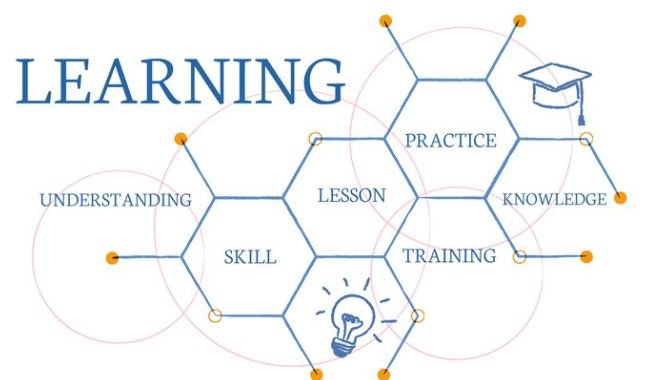CCE stands for Continuous and Comprehensive Evaluation which is an important system in schools to assess the learning levels of students by teachers. This approach is intended to keep students engaged and spirited in learning, particularly young learners. The practice of CCE is based on two principles — Continuous evaluation and Comprehensive evaluation.
What is Continuous Evaluation?
Year-long observation: Continuous evaluation means that the students would be observed for an entire year. Teachers do not just have a big test at the end of the term; they regularly check how well students understand. That can be via small quizzes, in-class exercises and even talking to each student.
Keep in mind that the whole theory of continuous assessment is about how we can accompany and help students to never stand still, not only when studying a quarter for proof readings.
To give an illustration, your math teacher may administer a mini-quiz each week and require you to solve problems on the board in class. Doing these activities lets your teacher know how well you comprehend the lesson. But you are stuck in case you start facing difficulty; Here your teacher comes to help instantly instead of bearing the struggle till the term ends.
What is a comprehensive assessment?
A holistic evaluation looks at all domains of student development, not just in academic terms. This means that teachers take many considerations into account when searching for abilities and skills in students. In addition to academic ones such as reading and math, this also includes creative skills (e.g., drawing or singing), and social skills (e.g., good classmates).
In an overall evaluation, your teacher can look for how you engage in group work, share comments during class discussions, or even if you play well with others. All of these things let your teacher know what type of learner and person you are.
IMPORTANCE OF CONTINUOUS AND COMPREHENSIVE EVALUATION
Now, CCE is essential as it leads the educational system to a holistic approach. This prevents learning only by rote memorization, and it ensures that students apply their academic knowledge in different contexts. It also helps to reduce the stress on students by not holding up just one or two (big) exams that will determine how well they are doing.
Lesson: If we were in a biology class learning about plants In CCE, you can be given a project like growing a plant and seeing how it grows each day by your teacher. You get your hands dirty and hence learn by making, through a project that demonstrates what you know in whatever way strikes your fancy! Additionally, I expect that your teacher will give you some little quizzes and may even require you to tell the class what you see during an observation. Doing all four of these things combined will show your teacher that you know the topic.

Continuous and Comprehensive Evaluation, CCE??
It is used for assessing the students in both Scholastic and Co- scholastic areas of interest from a very primary stage up to the Senior Secondary Level., The process aims at making evaluation an integral part of teaching-learning processes, CCE works by dividing every academic year into two terms with Formative Assessment & Summative Assessments CEE Approach = Form A (Sch ) + Area 1 to 5 / Grade I –X; Terms: Two/ YearSum/National Examinations: SA 2/SA\?III\VIIxstudents result as pass, Sch \?.
Formative Assessments: This type of assessment is like milestones on your journey towards learning. They are continuous practice and they happen in class regularly. Quizzes, Homework (assignments), Classwork, and Projects are formative assessments. They help your teachers understand how you learn things and what they can do to make that even better.
Summative Assessments – These are generally given at the end of a term or major unit. Summative assessments are larger tests or exams that test what you have learned over a greater period. It summarizes your learning then.
Continuing with the idea example I just used. Your teacher may assign you simpler activities throughout the term such as drawing parts of a plant, briefly writing how plants are formed, or looking after a class pet. These are Constructive Assessments.
You would write something like “general-scienc e final” and answer questions about all the information you learned on plants over at that term. There was a simple case of summative assessment.
Continuous and Comprehensive Evaluation (not truncated)
Advantages of the CCE System Here are some important ones:
CCE relieves stress: Students need not be unduly worried over one big exam possibly deciding their fate while gearing up for regular assessments. It helps you manage stress and anxiety
Promote Study Regularly: By performing continuous evaluations, students are continuously motivated to keep themselves up-to-date with their studies.
Identifies Learning Gaps: It tells the subject areas in which students may need more help early enough to provide that extra help by investments of resources on must-learners.
Personality development: Since CCE also deals with non-academic activities, kids gain different skills that are capable of shaping all-rounded personalities for students.helper factor (Your second point goes here)
Improves Communication Between Teachers and Students -Students can also gain a better understanding of their strengths and areas for improvement which will help them to communicate more effectively with teachers.
Problems of Continuous and Comprehensive Evaluation
CCE Is Good, But Not PerfectAnd while CCE has served us well (proven ROI and customer satisfaction) it is not without its challenges:
Teacher Time Consuming: As teachers need to take multiple assessments during the year, it can be very time-consuming for both students and teachers.
Consistency: Not all teachers would be grading students in the same way. One person might rate one student poorly while another teacher grades them well, and so on. The role of consistency comes in so that you make sure the way you are assessing all students is fair across the board.
Creates Additional Work for Teachers: A teacher is required to track and organize the performance of each student which only adds to their work pressure.
Parent Perception: Parents do not always understand or trust the CCE process, especially if their child fails to bring home a traditional report card.

Tips to Good in Continuous and Comprehensive Evaluation
The keys to doing well in a CCE system are that one should concentrate on all studies consistently and also participate actively during any activity conducted by the teacher. Here are some tips:
Participate in Class: Don’t hesitate to ask questions and let go of your thoughts in class. You will be judged based on how much you participate.
Become Organized — be it your assignment, note or project get everything in place on time. These are a few ideas to get started on how you could stay more organized, undoubtedly this is going to lead to crazy times of great stress but keeping yourself organized can make it easier for you to face all challenges.
Get Help: Ask your teacher for help when you do not understand something. Misunderstandings are much easier to contain in the beginning than they can be left misunderstood and get worse.
Recommendation No 7: Practice RegularlyAssessments are spread throughout the year so regular practice is a must. Do not study at the last minute.
Stop stroking Projects and Activities: Just as we take our projects or activities seriously. You should also include these as part of your assessment and are an excellent opportunity to demonstrate creativity in how you have identified various categories.
Conclusion
It is a system that helps teachers build the skills in students’ learning continuously. Additionally, it does not only focus on academic skills but also non-academic facets of education such as creativity and social intelligence. This allows schools to help kids grow into independent adults ready for the challenges of tomorrow.
However, if you are regular with your studies and participate in class then CCE is the easiest to score! Never forget that learning is not just about studying for exams, it’s a journey that helps you grow and gain knowledge to explore the world!


